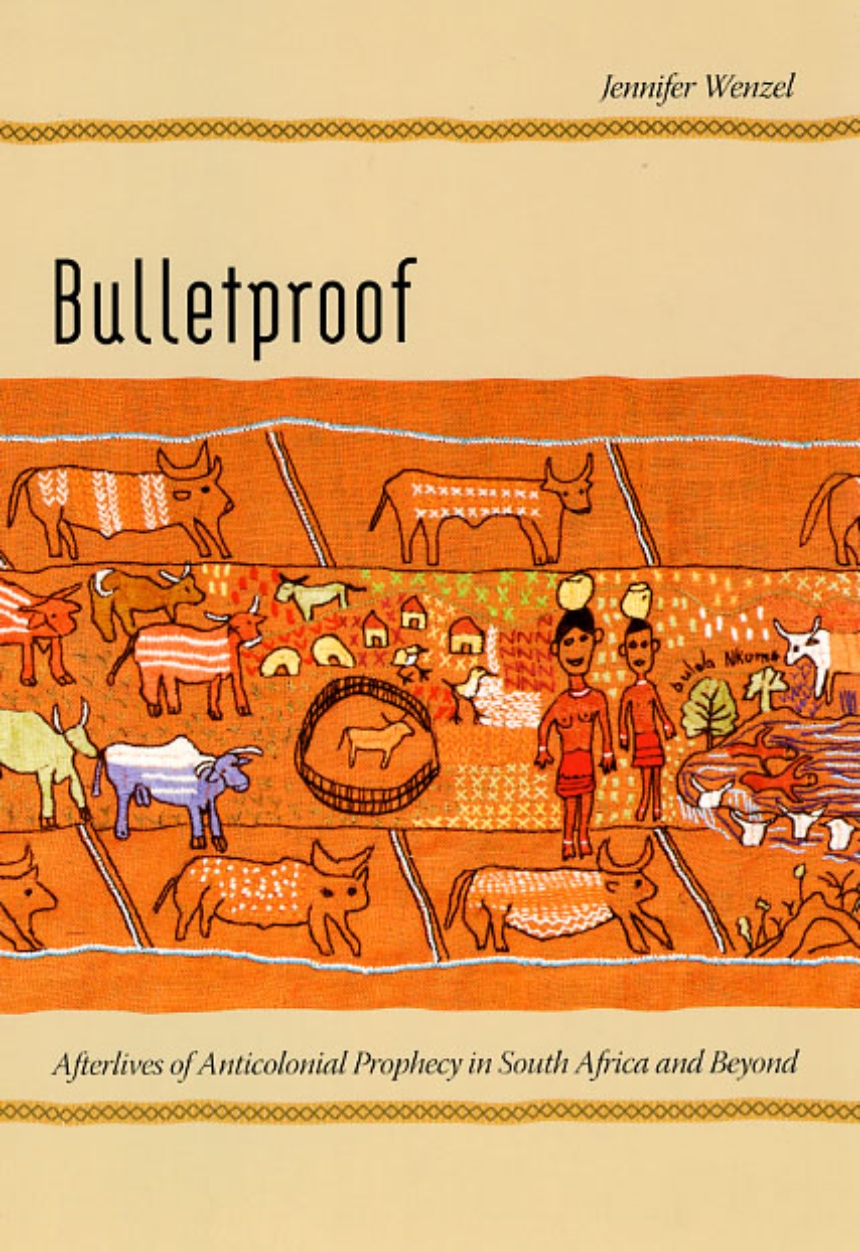Bulletproof
Afterlives of Anticolonial Prophecy in South Africa and Beyond
Bulletproof
Afterlives of Anticolonial Prophecy in South Africa and Beyond
In 1856 and 1857, in response to a prophet’s command, the Xhosa people of southern Africa killed their cattle and ceased planting crops; the resulting famine cost tens of thousands of lives. Much like other millenarian, anticolonial movements—such as the Ghost Dance in North America and the Birsa Munda uprising in India—these actions were meant to transform the world and liberate the Xhosa from oppression. Despite the movement’s momentous failure to achieve that goal, the event has continued to exert a powerful pull on the South African imagination ever since. It is these afterlives of the prophecy that Jennifer Wenzel explores in Bulletproof.
Wenzel examines literary and historical texts to show how writers have manipulated images and ideas associated with the cattle killing—harvest, sacrifice, rebirth, devastation—to speak to their contemporary predicaments. Widening her lens, Wenzel also looks at how past failure can both inspire and constrain movements for justice in the present, and her brilliant insights into the cultural implications of prophecy will fascinate readers across a wide variety of disciplines.
328 pages | 6 halftones, 1 map | 6 x 9 | © 2009
Anthropology: Cultural and Social Anthropology
History: African History
Literature and Literary Criticism: African Languages, General Criticism and Critical Theory
Sociology: Race, Ethnic, and Minority Relations
Reviews
Table of Contents
List of Illustrations
Acknowledgments
A Note on Terminology
Introduction
1 Writing Resurrection and Reversal: The Cattle Killing and Other Nineteenth-Century Millennial Dreams
2 Spectral and Textual Ancestors: New African Intermediation and the Politics of Intertextuality
3 The Promise of Failure: Memory, Prophecy, and Temporal Disjunctures of the South African Twentieth Century
4 Weapons of Struggle and Weapons of Memory: Thinking Time beyond Apartheid
5 Ancestors without Borders: The Cattle Killing as Global Reimaginary
Works Cited
IndexAwards
International Society for the Study of Narrative (ISSN): George and Barbara Perkins Prize
Honorable Mention
